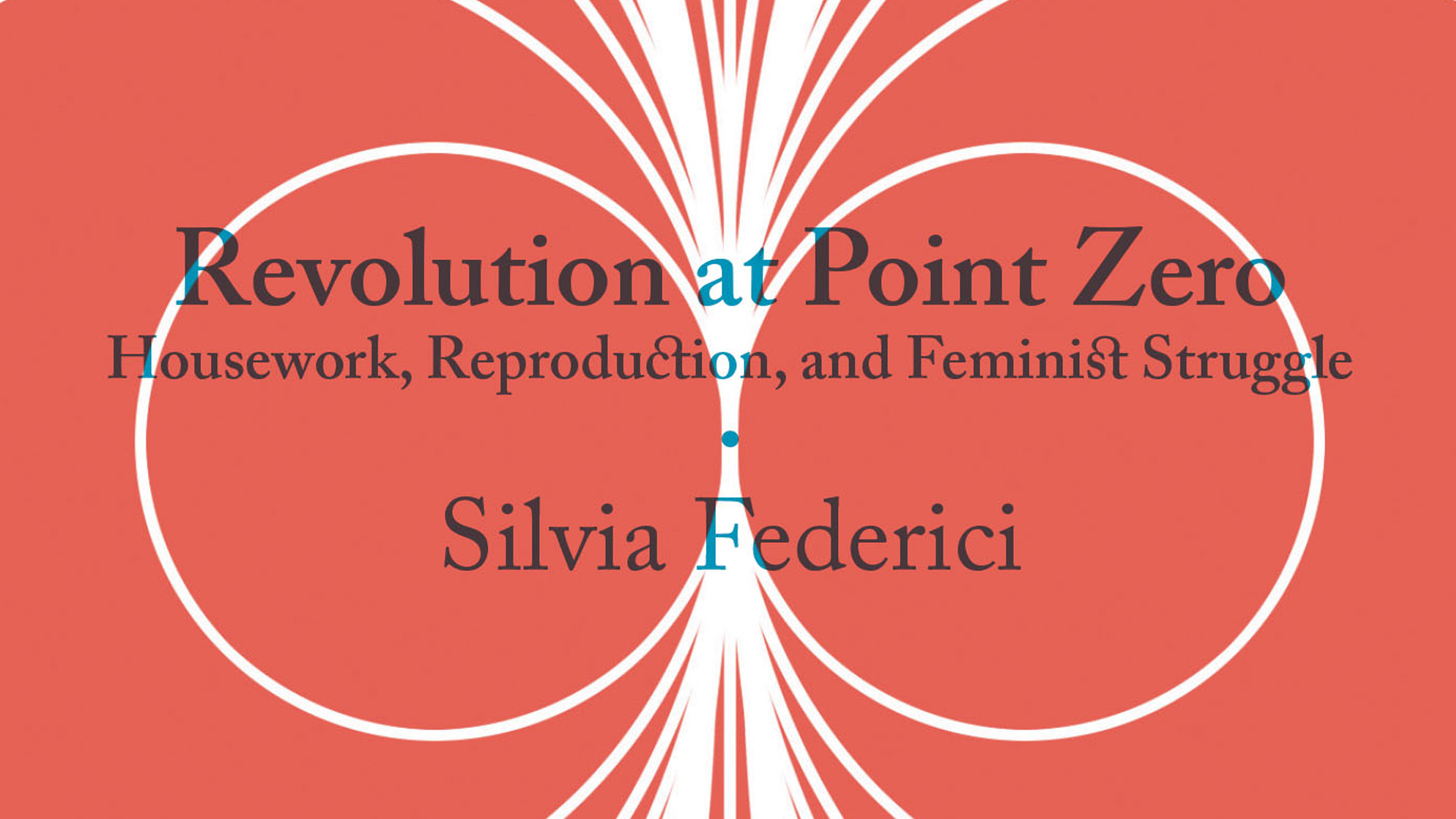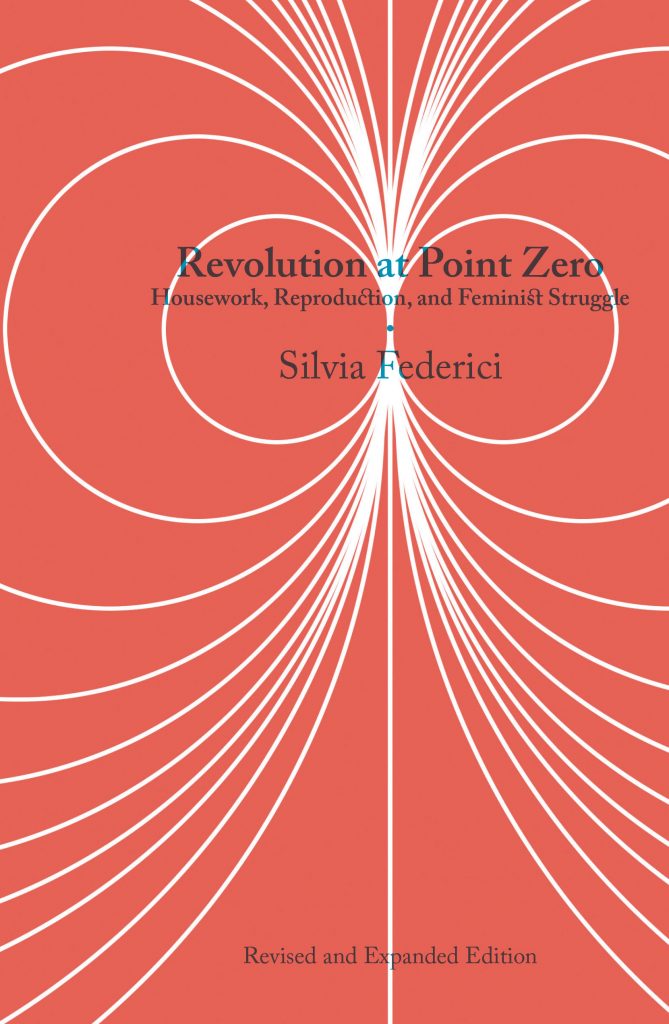by Emma Dowling
Feminist Review
(2014) 106
Revolutions do not simply result from changes at the top of a regime, from the replacement of one leader for another. Real transformations occur when the social relations that make up everyday life change, when there is a revolution within and across the stratifications of the social body. In Revolution at Point Zero, feminist scholar and activist Silvia Federici offers the kind of revolutionary perspective that is capable of revealing the obstacles that stand in the way of such change.
Her work concentrates on the hierarchies and divisions that divide and pit us against one another in a system that relies upon the devaluation of human activity in order to impose its rule. Moreover, for Federici, an unfinished feminist revolution characterises our present, meaning that any transformatory perspective must contest the subjugation of women’s bodies and labour, not as a separate sphere, but as part of the collective transformation of social relations necessary for real change to occur.
The essays in this volume are collected from nigh on four decades of involvement in social movements, bringing together Federici’s political thought across the myriad of everyday experiences that have informed the questions she has pursued in her writing. The guiding thread is the theme of social reproduction, ‘the complex of activities and relations by which our life and labour are daily reconstituted’ (p. 5). Importantly, this pertains to the ways in which women’s bodies, labour and emotional capacities have been exploited in the relentless and destructive pursuits of capitalist accumulation.
Revolution at Point Zero is divided into three parts. The first part of the book consists of Federici’s writing on the theory and politics of housework as it developed through her active involvement in the International Wages for Housework Campaign from 1972 onwards. The second part spans the period of the 1990s and early 2000s, when Federici spent some years teaching in Nigeria and experiencing first-hand the effects on developing countries of neo-liberal structural adjustment and a debt-fuelled austerity programme. The kind of feminist perspective she played an active role in furthering is one that looked to anti-colonial struggles and analyses to make visible the gendered and racialised dimensions of a global division of labour. It is a feminist perspective that can account for how the transformations characteristic of the neo-liberal era not only spell out a (partial) marketisation of domestic labour in response to feminist struggles, but also explain how the global reorganisation of work fuelled by the drive to impose the commodity form in ways that seek to harness and exploit labour in its unpaid and low-paid dimensions. The third part turns its attention to the commons and social reproduction, consisting of essays written in the early 2000s up until 2010 and the emergence of the most recent wave of anti-austerity struggles across the globe, including the Occupy movement.
Core to the feminist notion of reproductive labour is its double character as ‘work that reproduces us and valorises us not only in view of our integration in the labour market, but also against it’ (p. 2). Here lies the crux of what this perspective can yield for praxis: the need to find ways of living not confined to the measure of value on capitalist terms. This is not only about the satisfaction of basic material needs, but also about the emotional and psychological dimensions of social life. Confidence in one’s own self-worth and the need for real communities of mutual care are crucial for a politics of the present and a view towards a common future.
The perspective of social reproduction offers a generative lens through which to make sense of the contemporary crisis, bringing into view how an austerity regime increases unpaid reproductive labour as the financial crisis is off-loaded via the state onto individuals and households, and especially onto women. Federici is also concerned with how this goes hand in hand with, and indeed is played off against, both the further marketisation and financialisation of social reproduction. Her recent work on micro-credit regimes attends to this latter aspect, where she is concerned with the ways in which individuals and communities are suffering under the yoke of debt. Indeed, the shift from the wage to debt as a disciplining device calls for a feminist analysis that can understand the transformations in political economy that are taking place: both the politics of the relationship between debtors and creditors and the affective dimensions of indebtedness and the ways that feelings of shame and inadequacy are mobilised. Precisely in this context, it is necessary to build collective practices of care to undo and transform individualisation and isolation.
Federici offers an appeal that is as astute as it is empathetic to the challenges that contemporary social movements face in building sustainable, self-reproducing social movements that can imagine and enact forms of sociality not beholden to capitalist appropriation and command—that is, a viable social body. Revolution at Point Zero will be of interest to anyone concerned with feminist history. But much more than that, this is a collection of essays that speaks to our present condition and how change can happen. In so doing, thought and action are not separated but constantly woven together in an inspiring and unwavering commitment to bringing about a better world.







